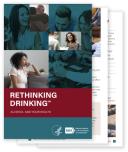Developed by the U.S. Department of Agriculture and the U.S. Department of Health and Human Services, the 2020–2025 Dietary Guidelines for Americans provide recommendations on what the average American should eat and drink to promote health and help prevent chronic disease. According to the guidelines, adults of legal drinking age can choose not to drink or to drink in moderation by limiting intake to two drinks or less in a day for men and one drink or less in a day for women when alcohol is consumed. Drinking less is better for health than drinking more. There are some adults who should not drink alcohol, such as women who are pregnant. Adults who choose to drink, and are not among the individuals listed below who should not drink, are encouraged to limit daily intakes to align with the Dietary Guidelines. People who do not drink should not start drinking for any reason.
When Is Drinking in Moderation Still Too Much?
According to the 2020–2025 Dietary Guidelines for Americans, certain individuals should not consume alcohol. It’s safest to avoid alcohol altogether if you are:
- Taking medications that interact with alcohol
- Managing a medical condition that can be made worse by drinking
- Under the age of 21, the minimum legal drinking age in the United States
- Recovering from alcohol use disorder (AUD) or unable to control the amount you drink
- Pregnant or might be pregnant
In addition, certain individuals, particularly older adults, who are planning to drive a vehicle or operate machinery—or who are participating in activities that require skill, coordination, and alertness—should avoid alcohol completely.



